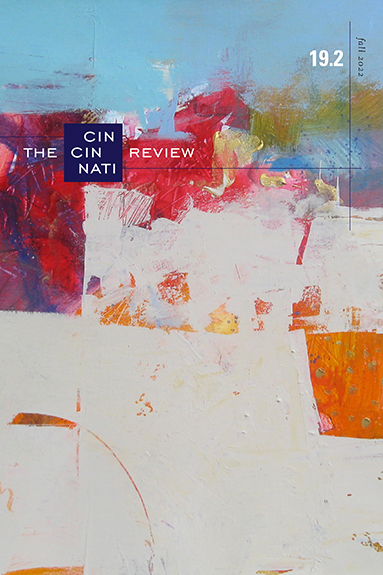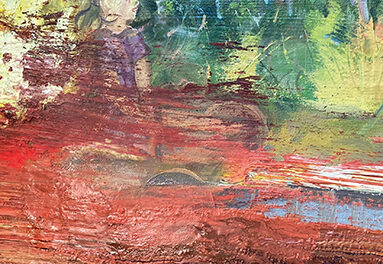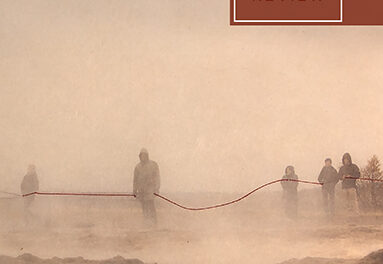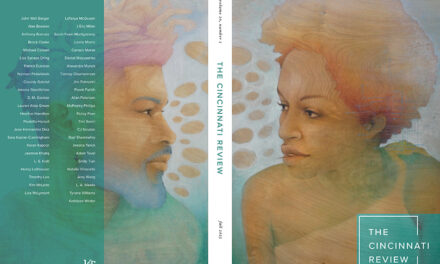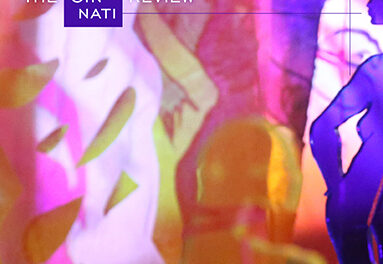Blank peal of a glass door in the archive of memory,
you want nothing or you fear nothing, breath is the daughter
you never had. Escape offers its temporary attention, gaze
set permanently on some middle distance at which a bridge
can be made out, dimly, to burn. I stepped onto
the archaeological site with a confidence borne of schematics
my soul had memorized. For this, yes, is the nature
of the soul, to recognize a pattern—& then respond
in the register of prisoners issued fresh new uniforms
one special day each year. They’re so soft, as if
worn previously by angelic beings hunger had exterminated.
This is a poem about quiet & the livid fractures
quiet binds, when, as Michael Palmer put it, the heart
is flexible. We were sent down to the water table
to record the shadows of the curious animals & the rings
they coveted. I dreamed terrible things in the deconsecrated
chapel, carried as if by a flood past vast banquets
my members had once attended, without my knowledge
or consent. Because a little knowledge is treacherous,
like music, like the currencies of small republics, someone
makes it, & we, fresh from the breath’s actuarial séance,
press it into the album of the senses, desperate to act
before the officiant blows again on her bronze whistle.
I wanted to embark upon the natural history of glass
as someone else might an ocean liner, or a telephone call.
Why aren’t the names of things determined by the tones
snow relinquishes as it strikes them, again & again?
Certain ecclesiastical languages must have a word for this,
Old Church Slavonic or Geez. The hospital corridors
seemed to revolve around some elusive definition of fact,
which annoyed me. Let’s persuade the blind soldiers
to dance with their weapons, the heir apparent suggested,
adjusting his steel-rimmed spectacles. I have not forgotten
the taste shame left in the mouth of my childhood,
like bark stripped from some bitter tree & then infused,
delicately, with the aroma of a single ripe peach
I’d stolen. Sometimes it is good to steal the things
that already belong to you, like Christ or the long grass
that edged the columbarium’s gravel promenade. Frost
trained its ship on the cage that held my bitter affections
until I knocked the zither from its sutured paws.
I wanted fire, I wanted to loosen all the little pegs that held
the theater fixed to the stallion’s heaving, lathered flank.
Can I be honest with you, someone in the crowd kept asking.
Can I be an honest man in a vast shopping arcade
named for a war we lost, then won, then lost again.
The rain fed it & the memory of those vexed encampments
reproduced with phylogenetic accuracy. I excavated
a new forest from the shattered lens, but it demanded
that I carry it—I, who was just then entering the polis
from my dwelling in the outposts, on other business—
to age, for instance, to parley with the comity of my cells,
which are programmed to receive time’s emissaries
warmly, to stable their rough stock, accept their gifts.
They are all rigorous Platonists. Remember the island
where the dead were informed of their absolute right
to quit talking about philosophy, about both branding
& desire. Because that’s what the dead, otherwise,
would insist upon discussing, on their endless late-night
radio programs sponsored by electricities we haven’t yet
found the means to deplete. This poem is a discourse
on depletion & on the joy I felt when, as a child, I latched
my purpose to the square turquoise book entitled
The Sea that belonged to my parents, in which black-
&-white photographs of diatoms taken at outrageous
magnifications mimed, or so I vaguely gathered,
their ten thousand benedictions. How strong the beams
seemed, then, billowing with the beatific intelligence
of magnetically charged objects. I wanted to be
a man of tribute, so I taught myself to walk, first,
& only then to speak. Because the body’s movement
across a field of broken glass should mean something
the dead know about, when they approach the living,
rattling their begging bowls. All these modern grimoires
masquerading as loans to the confraternity of widows
whose spacious symbols admit the pilgrims
that arrive hourly from the desert, their maimed homilies,
their vitamin supplements, their ecstatic cries of praise.
See more poems from Issue 19.2 by purchasing a copy in our online store. Digital copies only $5

